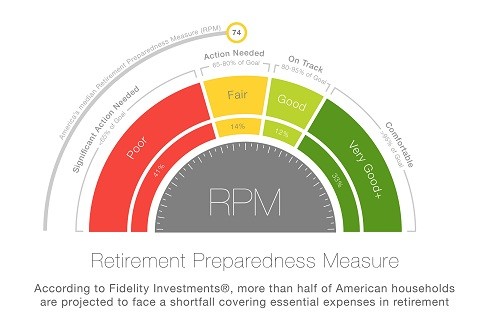Fidelity issues update on five key risks to retirement income Investment Executive
Post on: 25 Май, 2015 No Comment

Companies cited in this article
Fidelity Investments Canada ULC
CIFPs — Canadian Institute of Financial Planners
As life expectancy climbs and market volatility rises, your clients’ retirement income is subject to some increasingly worrisome risks that need to be factored into their retirement plans, according to Peter Drake, vice president of retirement and economic research at Fidelity Investments Canada ULC.
This presents a significant opportunity for advisors, Drake said, as Fidelity’s research shows that just 25% of pre-retirees have a written financial plan.
In helping clients plan for retirement, here are five key risks to consider:
1. Longevity risk
Canadians are living longer and healthier lives. For a couple aged 65, there is a 50% chance that at least one of them will live to age 90, and a one in four chance that at least one of them will live to 94.
As a result, the average length of retirement has risen to 23 years in 2010 from 17 years in 1981, according to Drake.
As life expectancy climbs, he said advisors should help clients determine how early they can afford to retire, and should urge them to address the possibility that they’ll need 25 to 30 years of post-retirement income.
“This is still a big risk, and perhaps an even bigger risk,” Drake said, explaining that many Canadians’ portfolios declined sharply during the market downturn. “They now have less time to fund their retirement, which is just as long – or longer – than it was going to be before.”
2. Inflation risk
Any level of inflation is a concern for retirees. Even a modest 2% inflation over the span of a 25-year retirement – the average rate over the past 20 years – can erode a retiree’s purchasing power by 40%, according to Fidelity’s research.
“There is some uncertainty about whether we’re going to see more inflation here in North America,” said Drake, “but even if we don’t, inflation is still a key risk to our retirement income.”
3. Asset allocation risk
Many clients have become wary of equities in the aftermath of the financial crisis, but advisors must remind clients that stocks have historically provided long-term growth that is critical in providing the necessary amount of income in retirement, Drake said.

He added that a properly diversified portfolio can reduce volatility substantially.
“Asset allocation matters just as much or more than it did before,” Drake said.
4. Withdrawal rate risk
Rising stock market volatility over the last few years has highlighted the need for conservative withdrawal rates in order to help ensure that a client’s investments will last the duration of their retirement.
Drake recommends that clients withdraw no more than 4% to 5% of their investment portfolio per year in retirement. Otherwise, he warns they’ll face a greater risk of outliving their investments.
5. Health care risk
The 2010 Fidelity Retirement Survey highlighted the concerns retirees have about potential health care costs they’ll face beyond what is covered by government and private insurance. In fact, 39% of retirees surveyed believe these health care costs could deplete their savings and lower their standard of living.
Advisors can help clients mitigate this risk by discussing their potential health care needs and planning for the financial impact of any potential expenses that aren’t covered by government plans and private insurance.














